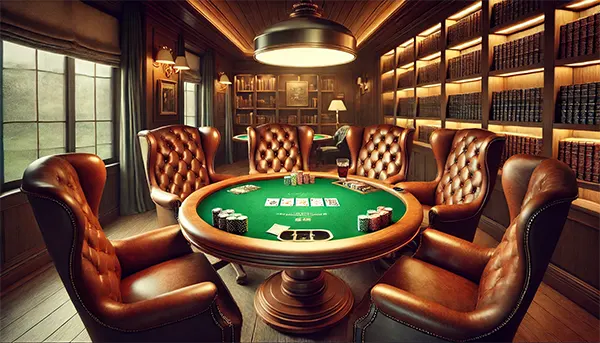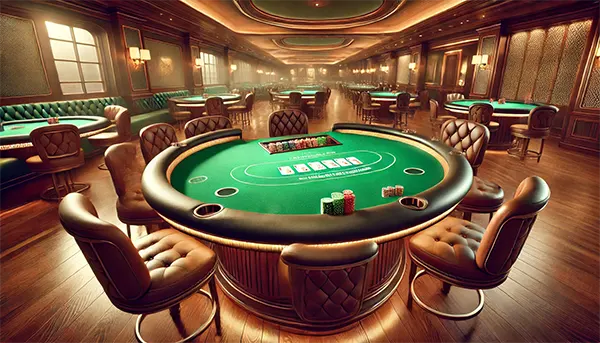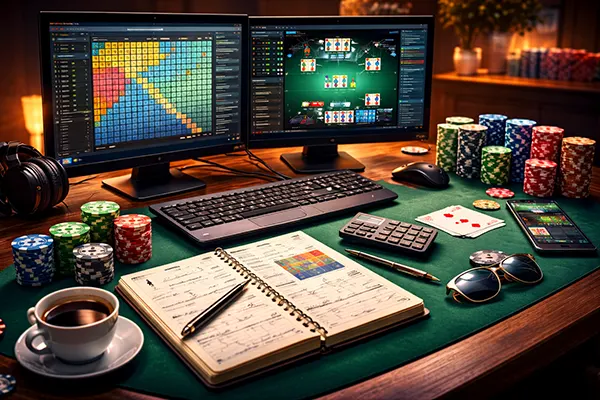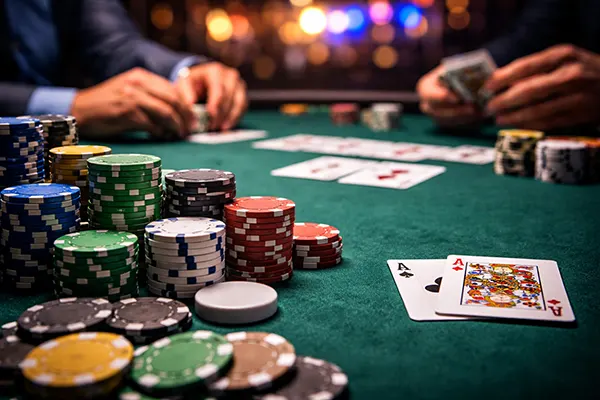
How to Choose the Right Poker Table
Choosing the right poker table is a crucial factor for both casual and professional players. The type of table you play on can significantly impact comfort, gameplay efficiency, and even strategic decision-making. Many elements, such as the table’s dimensions, material, and features, must be considered before making a final choice. Understanding these factors will help you create an optimal poker setup, whether at home or in a professional setting.
Table Size and Shape
The size and shape of a poker table determine how well it fits within a given space and how comfortable the game will be for players. Selecting the right dimensions ensures that all participants have sufficient room to place their chips, cards, and drinks while maintaining a smooth gameplay experience.
When choosing a table, it is important to assess the number of expected players. If you host larger games, a full-sized oval or rectangular table accommodating up to ten players is ideal. However, for casual home games with fewer participants, a round or small oval table may be more suitable. Space constraints should also be considered, as a poker table should fit comfortably in the gaming area while allowing players to move freely around it.
Aside from dimensions, table height is another factor to consider. A standard poker table is approximately 75 cm (30 inches) in height, designed to be used with regular chairs. Some tables, particularly those for casual home games, offer adjustable legs to accommodate different seating preferences.
Standard Table Dimensions
Most professional poker tables range in length from 180 cm to 240 cm (6 to 8 feet), with widths between 90 cm and 120 cm (3 to 4 feet). The choice of table size depends on the available space and the number of players. Oval-shaped tables are the most common in casinos, as they provide ample room for players and a designated dealer area. Round tables, on the other hand, are better suited for smaller games, typically accommodating up to six players.
When setting up a poker room, it is essential to consider player comfort. Each player should have at least 60 cm (24 inches) of space at the table to ensure smooth movement of chips and cards. Ensuring sufficient room between the table and surrounding furniture or walls is equally important to create an enjoyable and unrestricted gaming environment.
Material and Build Quality
The materials used in a poker table’s construction determine its durability, aesthetics, and comfort. A well-built table enhances gameplay and provides a professional feel. Key components such as the playing surface, frame, and padding should be assessed before purchasing a table.
One of the most significant aspects of a poker table is the playing surface. High-quality felt or speed cloth ensures that cards slide smoothly without unnecessary friction. Casino-grade felt is the preferred choice for professional setups, as it is durable and resistant to wear. Some tables use synthetic materials designed for easy maintenance, offering water-resistant properties to prevent damage from spills.
The frame and legs of the table also play a crucial role in stability. Wooden tables provide a classic, sturdy feel, while metal-framed tables offer modern aesthetics and increased durability. Some tables feature collapsible legs for easy storage, making them ideal for multi-purpose gaming rooms.
Felt and Cushioning
A poker table’s felt surface should be smooth and resistant to pilling. The most common options include traditional felt and speed cloth. Speed cloth, made from polyester, allows cards to glide effortlessly, making it the preferred choice for professional players. Traditional felt, while softer, may wear out faster and require occasional replacement.
In addition to the playing surface, the table’s rail and cushioning contribute to player comfort. A padded rail provides a comfortable resting place for players’ arms, reducing fatigue during extended sessions. High-end poker tables often feature premium leather or vinyl padding, which enhances durability and aesthetics.
The table’s legs should also be considered, especially for home setups. Some tables come with foldable legs for easy storage, while others have fixed wooden or metal frames for added stability. Choosing a table with sturdy construction ensures longevity and a professional gaming experience.

Features and Accessories
Beyond size and material, additional features and accessories can enhance the playing experience. Many poker tables include built-in elements that improve organization and comfort. From chip trays to LED lighting, these features can make games more enjoyable and immersive.
One essential feature found on many poker tables is a designated dealer position. In professional games, having a specific spot for the dealer ensures a smooth and fair gaming experience. Dealer areas often include a chip tray and card holder, allowing for efficient gameplay.
Cup holders are another useful accessory, preventing spills and keeping drinks away from the playing surface. Tables with built-in cup holders offer convenience without compromising space for chips and cards. Some high-end poker tables also feature armrests with integrated cup holders, adding to player comfort.
Dealer Spots and Cup Holders
Professional poker tables often include designated dealer areas to streamline gameplay. These spots typically feature built-in chip trays, allowing for organized betting and smooth game progression. A dealer’s position is particularly useful in structured games or tournaments where a dedicated dealer is present.
Another practical feature is the inclusion of cup holders. Players often enjoy refreshments during long poker sessions, and cup holders help prevent accidental spills. Some tables feature recessed cup holders in the rail, while others incorporate them into the playing surface. Ensuring that cup holders do not obstruct gameplay is essential for maintaining a seamless poker experience.
For those looking for a high-end gaming experience, some poker tables come with built-in LED lighting, USB charging ports, and custom felt designs. These additions enhance the aesthetics of the gaming environment and provide added functionality.
By considering all these factors, players can select a poker table that meets their needs, ensuring an enjoyable and professional gaming experience. Whether hosting casual games at home or setting up a dedicated poker room, investing in a quality poker table enhances both gameplay and overall comfort.



